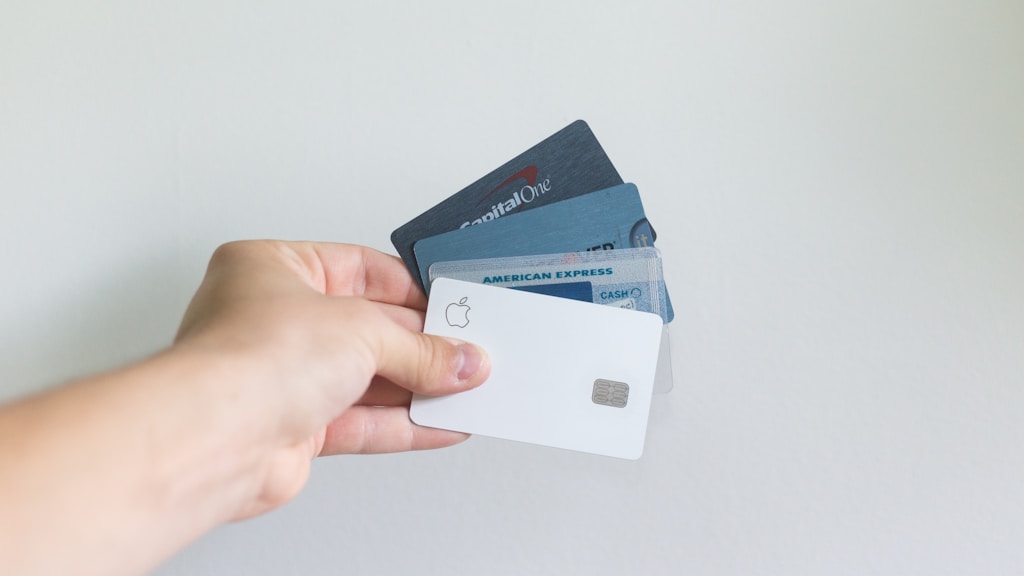
Let’s talk about… debt
 Have you’ve ever found yourself thinking it would be wonderful to have all your debts wiped out? Let me tell it’s not.
Have you’ve ever found yourself thinking it would be wonderful to have all your debts wiped out? Let me tell it’s not.
A friend of mine, and her husband, were declared bankrupt a few years ago after taking on too much debt in their business, and they’ll be the first to tell you things have been pretty gruesome for them. They lost their home, the kids had to move school, and they couldn’t even get credit for a new smartphone…
I’ve always been passionate about financial resilience, but when my friend expanded her business and was unable to pay off her debts after things didn’t go according to plan, I made a promise to myself that I would do all I could to prevent it from happening to others. Hence why I talk obsessively about saving for a rainy day, or making sure a business has thought about all eventualities when expanding.
We need to be able to withstand any financial storm that hits us especially if we have debt.
Whilst credit in its many forms can be useful to help us out in a tight spot, or support us when we take on new premises, staff or experiment with a new product, it can also financially cripple us when we find our plans haven’t quite unfolded as they should have.
 Equally what is frightening is that many people, through no fault of their own, are unable to assess if they can afford credit (as we saw in the lead up to the financial crash of 2007/8). Therefore, it really angers me when I open my mail, or emails to messages such as ‘You’re qualified for a capital on tap business credit card’ or ‘Claim up to £200,000 to boost your business as the UK reopens’.
Equally what is frightening is that many people, through no fault of their own, are unable to assess if they can afford credit (as we saw in the lead up to the financial crash of 2007/8). Therefore, it really angers me when I open my mail, or emails to messages such as ‘You’re qualified for a capital on tap business credit card’ or ‘Claim up to £200,000 to boost your business as the UK reopens’.
Whilst I know many businesses are facing financial difficulties, especially as they recover from the impact of Covid restrictions suffered during the last 14 months, taking on debt, or more debt, is not the answer, at least not without doing a thorough financial forecast. Equally whilst the BBLS and CBILS loans were incredible helpful, and quick to be granted, no thought was given about how they will be paid back.
It is crucial as you implement a Covid-recovery plan a thorough financial forecast is carried out.
 Last week I carried out a financial feasibility assessment with a client, preparing a best and worst-case scenario forecast. The business had two options available to them. Build something from scratch, or tweak an existing product. The new build was going to cost 3 times more, and whilst it was the favoured project to undertake, the client knew she needed to see what impact it would have on her finances.
Last week I carried out a financial feasibility assessment with a client, preparing a best and worst-case scenario forecast. The business had two options available to them. Build something from scratch, or tweak an existing product. The new build was going to cost 3 times more, and whilst it was the favoured project to undertake, the client knew she needed to see what impact it would have on her finances.
After she supplied me with the required information I needed, I forecasted the impact each project would have on her finances, taking into account many different scenarios. We then got together and thrashed a few more assumptions about. The conclusion, albeit still guesswork, was the new build would require a loan, and take at least 7 years to repay comfortably. The other project was therefore chosen, as it required no loan and had very little impact on her finances. It was also a product that would generate income within the next 3-6 months (the new build would take at least a year to bring in sales, and cost far more). However, what we also found was by choosing to amend a current product, in time it would be able to fund the new build. This way, whilst it would take longer to bring the brand new product to market, it would not be financial suicide, but if she undertook the new build project now, it would be.
After being in accountancy for over 20 years, I have carried out a lot of financial forecasts!
Most financial forecasts and budgets I have prepared over the years have rarely gone according to plan, as forecasting is just guesswork in its rawest form. However, since my friend went bankrupt, I have applied a much more thorough technique, taking a lot more into the forecast and whilst it’s still guesswork, they have been a lot closer to reality. I also prepare 3 versions for each option being considered: best case, worst case and somewhere in between. This allows the business to see if they could cope financially with the debt when plans go astray, as they inevitable do.
 Whilst I love encouraging businesses to be optimistic, especially as doom and gloom won’t get us out of bed in the morning, we must acknowledge past events such as the financial crash of 2007/8 and the Covid restrictions, can have a serious impact on our business and personal finances. I don’t think anyone could have predicted the impact of the last 14 months but this highlights the need to question our plans more strategically, and accept we are not always in control.
Whilst I love encouraging businesses to be optimistic, especially as doom and gloom won’t get us out of bed in the morning, we must acknowledge past events such as the financial crash of 2007/8 and the Covid restrictions, can have a serious impact on our business and personal finances. I don’t think anyone could have predicted the impact of the last 14 months but this highlights the need to question our plans more strategically, and accept we are not always in control.
The majority of businesses that have failed, either recently or in the past, have done so because they failed to accept that whilst their idea was fabulous, someone else or something else was lurking around the corner. For a financial resilient business, it’s frustrating when challenges come along, but with a few tweaks most can survive. However, a business loaded with debt or heavily invested in a particular technology or way of doing things, will find it incredibly challenging and likely struggle to adapt.
By all means expand your business, increase your offering to your customers, and take out a loan if you need to, but always do financial forecasts first and take account of everything that is going on around you (technology, political, environment, competition) and consider how you could respond if your world was turned upside down.
If you would like to know more about how we could help you with a financial feasibility assessment please get in touch.
By Helen Monaghan
ABOUT THE AUTHOR
Helen Monaghan is a Chartered Management Accountant, accredited NLP Practitioner & Finance Coach. Both a psychology graduate and an accountancy graduate, she has authored three business books, which beautifully bring together psychology, finance, and tax to empower the reader about money. Helen is also the founder of HM Finance Coaching Ltd, a company that provides financial education and business mindset coaching to SMEs across the UK, in addition to accountancy services for limited companies in Scotland.
© HM Finance Coaching Ltd



